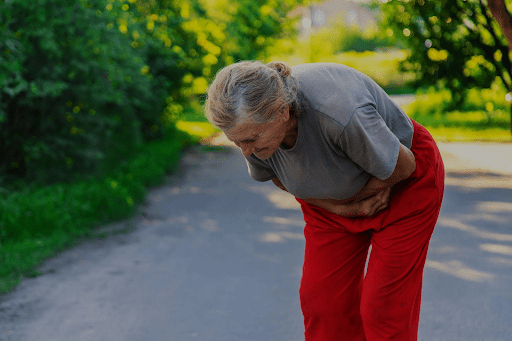The Four Stages of Menopause – What Every Woman Needs to Know
What are the Different Stages of Menopause and their Symptoms
Menopause is a significant transition in a woman’s life, marking the end of her reproductive years. This journey isn’t just a single event but a process that unfolds over several years, involving various physical and emotional changes. But how many stages of menopause are there, and what can you expect during each stage? Let’s delve into the stages of menopause to understand this natural transition better.
How Many Stages of Menopause are there?
There are four stages of menopause – premenopause, perimenopause, menopause, and postmenopause. Each stage has distinct characteristics and symptoms. Understanding these stages can help you manage and navigate through them more effectively.
Stage 1 – Premenopause
Premenopause refers to the time when a woman is still in her reproductive years, and her menstrual cycles are regular. During this stage, hormones like estrogen and progesterone are balanced, and there are typically no menopause-related symptoms.
Key Characteristics:
- Regular menstrual cycles
- Balanced hormone levels
- No menopause symptoms
This stage is essentially the baseline of reproductive health, where the body functions normally without the impending signs of menopause.
Stage 2 – Perimenopause
Perimenopause is the early stage of menopause and can start several years before menopause itself, typically in a woman’s 40s, but sometimes as early as the mid-30s. During this stage, the ovaries gradually produce less estrogen, leading to hormonal fluctuations and various symptoms.
What are the early stages of menopause symptoms during perimenopause?
- Irregular Periods: One of the first signs of perimenopause is changes in menstrual cycle length and flow. Periods may become shorter or longer, and the flow can vary from light to heavy.
- Hot Flashes: These sudden feelings of warmth, often intense, can occur during the day or night (night sweats). They can last from a few seconds to several minutes.
- Sleep Problems: Many women experience difficulty falling asleep or staying asleep, often due to night sweats or hormonal changes.
- Mood Changes: Increased irritability, anxiety, or depression can occur due to hormonal imbalances.
- Vaginal Dryness: Reduced estrogen levels can lead to decreased moisture and thinning of vaginal tissues, causing discomfort during intercourse.
- Decreased Libido: Lower hormone levels can affect sexual drive and function.
- Weight Gain: Hormonal changes can slow metabolism, leading to weight gain, particularly around the abdomen.
Duration: Perimenopause can last anywhere from 4 to 10 years.
Key Characteristics:
- Hormonal fluctuations
- Symptoms like hot flashes, irregular periods, and sleep disturbances
- Can last 4-10 years
Stage 3 – Menopause
Menopause is officially diagnosed when a woman has not had a menstrual period for 12 consecutive months. The average age of menopause is 51, but it can vary widely among individuals. At this stage, the ovaries have stopped releasing eggs, and estrogen levels drop significantly.
Symptoms of Menopause:
- Continuation of Perimenopausal Symptoms: Hot flashes, mood swings, and sleep problems may persist and sometimes increase in intensity.
- Bone Density Loss: The significant drop in estrogen levels can lead to decreased bone density, increasing the risk of osteoporosis.
- Changes in Cholesterol Levels: Lower estrogen levels can negatively impact cholesterol levels, raising the risk of heart disease.
- Urogenital Atrophy: The tissues of the urinary and genital tracts can become thinner and less elastic, leading to discomfort and increased risk of infections.
Key Points:
- No periods for 12 months
- Significant drop in estrogen
- Increased risk of osteoporosis and heart disease
Stage 4 – Postmenopause
Postmenopause begins immediately after menopause and lasts for the rest of a woman’s life. During this stage, menopausal symptoms may ease for some women, but others may continue to experience them. Additionally, the risks associated with low estrogen, such as osteoporosis and heart disease, become more prominent.
Postmenopausal Symptoms and Health Concerns:
- Persistent Hot Flashes and Night Sweats: For some women, these symptoms can continue for several years after menopause.
- Vaginal Dryness and Atrophy: Vaginal tissues remain thin and dry, which can cause discomfort and increase the risk of infections.
- Bone Health: The risk of osteoporosis is higher due to the sustained low levels of estrogen. Regular bone density tests and calcium supplements are often recommended.
- Heart Health: Women in postmenopause are at a higher risk of cardiovascular issues. Monitoring cholesterol and blood pressure is crucial.
- Urinary Incontinence: Weakening of pelvic muscles can lead to urinary incontinence, necessitating pelvic floor exercises or medical interventions.
Key Points:
- Symptoms may persist or decrease
- Higher health risks due to low estrogen
- Focus on managing long-term health
Managing Symptoms Through the Stages of Menopause
Navigating the different stages of menopause can be challenging, but several strategies can help manage symptoms effectively.
Lifestyle Changes
- Diet and Nutrition: A balanced diet rich in calcium and vitamin D can help manage symptoms and reduce the risk of osteoporosis. Incorporate plenty of fruits, vegetables, and whole grains while reducing saturated fats and sugars.
- Exercise: Regular physical activity can improve mood, help maintain a healthy weight, and strengthen bones. Weight-bearing exercises like walking, jogging, and strength training are particularly beneficial.
- Sleep Hygiene: Establishing a comfortable sleep environment and maintaining a regular sleep schedule can help with sleep disturbances. Avoid caffeine and heavy meals before bedtime.
Medical Treatments
- Hormone Replacement Therapy (HRT): HRT can alleviate many menopausal symptoms by supplementing estrogen levels. However, it’s important to discuss the risks and benefits with your doctor, as HRT is not suitable for everyone.
- Non-Hormonal Medications: Antidepressants, blood pressure medications, and other non-hormonal treatments can help manage specific symptoms like hot flashes and mood swings.
- Topical Treatments: Vaginal estrogen creams, rings, or tablets can help with vaginal dryness and discomfort.
Alternative Therapies
- Herbal Supplements: Some women find relief from menopausal symptoms with herbal remedies like black cohosh, soy products, and red clover, though their efficacy can vary. Always consult with a healthcare provider before starting any new supplement.
- Acupuncture: This traditional Chinese medicine practice may help reduce the frequency and severity of hot flashes.
- Mind-Body Techniques: Practices like yoga, meditation, and deep-breathing exercises can improve overall well-being, reduce stress, and help manage symptoms.
Emotional and Psychological Support
The early stages of menopause and beyond can bring about significant emotional changes. Seeking support from friends, family, or professional counsellors can be beneficial.
- Counselling: Talking to a therapist can help manage mood swings, depression, and anxiety.
- Support Groups: Joining a menopause support group can provide a sense of community and understanding. Sharing experiences with others going through similar changes can be incredibly reassuring.
- Education: Understanding what’s happening in your body can empower you and reduce anxiety about the changes you’re experiencing. Educational resources, books, and reputable websites can provide valuable information.
Final Takeaway
Understanding the different stages of menopause is crucial for managing the symptoms and changes that come with this natural transition. From the early stages of menopause, marked by perimenopausal symptoms, through to postmenopause, each stage presents its own set of challenges and adjustments. By staying informed and proactive, you can sail through these stages with greater ease and confidence.
Menopause is not merely an end to reproductive years but an opportunity to focus on overall health and wellness. With the right tools and knowledge, you can turn this transition into a period of growth, self-care, and renewed focus on your well-being. Every woman’s experience with menopause is unique, and there is no one-size-fits-all solution. The key is to listen to your body, seek support when needed, and approach this stage of life with an open mind and a positive attitude.
Take control of your menopausal journey today!
https://chat.whatsapp.com/G7JKOO6BhygDv5w6vFnp8O
Join our community to share your experiences and find support from others going through the same transition. Together, we can thrive through menopause and beyond. Don’t wait—empower yourself with the information and support you need to live your best life!
Citations:
https://news.sanfordhealth.org/womens/what-to-expect-menopause-stages/
https://www.healthline.com/health/menopause#stages
https://www.lanermc.org/community/lane-health-blog/4-stages-of-menopause











